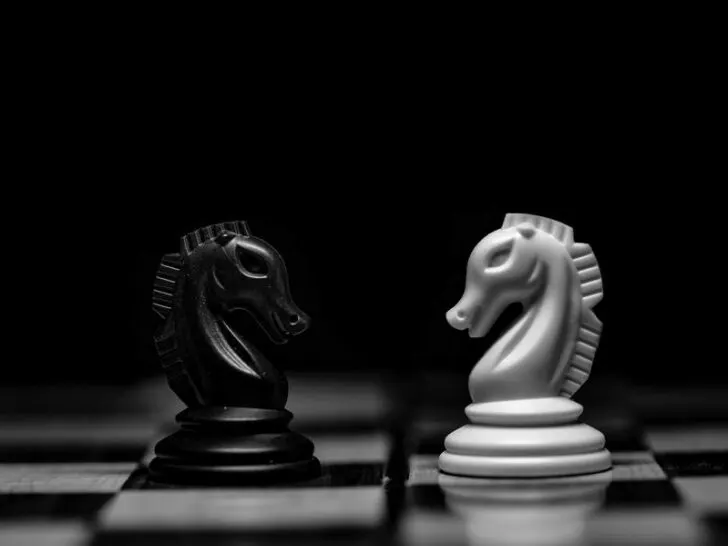Strategists and tacticians, how often have you heard these words in various discussions and thought that these two words have the same meaning?
However, this isn’t the case; these two terms differ. Since these terms are often used interchangeably, it’s important to highlight their difference.
In this article, I’ll talk about the difference between these two terms and will help you better understand what these words mean.
I’ll do this with the help of examples and quotes to make the information fun and easy for you to digest, so without further ado, let’s get started.
What Does Thinking Strategically Mean?
Strategic thinking is a way of dealing with a constantly changing environment, responding to that environment to achieve your goals, and attempting where possible to change the environment for your benefit.
A strategy is a long-term plan devised to reach a certain goal backed with a purpose. It involves decisions taken at a higher level.
A strategy is a tactic that changes according to the people and their status.
For example, in business, the improvement of a certain department might be the strategy of the manager or the head of that department, whereas, for the owner of this business whose aim is to improve the performance of all departments and sectors, this would be a short term goal which is called a tactic.
Now that we know a strategy, let’s talk about the person who makes a strategy.
Who Is a Strategist?
A strategist thinks and makes decisions about the future. His goals and plans are long term and a specific purpose backs them. A strategist tends to maximize his chances of securing victory and changes the environment to suit him and make it possible for him to achieve his goal.
He thinks innovatively, expands his resources, and carries out new operations to secure victory.
He takes precautions beforehand to ensure survival, minimizes his chances of losing, picks battles carefully, and knows when to quit. Strategies can be applied to many areas of life and in different fields.
For example, in sports, your strategy involves figuring out your opponent’s weaknesses, where they are vulnerable, and how to beat them. For rulers and kings, their strategy would involve introducing reforms and making changes to help them rule their empires efficiently.
Who Is a Tactician?
A tactician is concerned with the now, makes decisions, and devises his plan to win the battle. He has a narrow perspective and is only concerned with accomplishing the task.
He makes the best available resources and responds to the situation according to his short-term goal. He won’t be concerned with the consequences or aftermaths of his endeavor.
A tactician helps to execute the strategies. Tacticians don’t have the time to prepare or choose the circumstances of their fights, they simply need to adapt to the situation and overcome the challenges they face using what they have.
An example of a famous tactic is the matchbook tactic used by Britain against Germany in the Second World War. The British general tricked the Germans, so they turned against themselves and disunited.

Herald Harada, the king of Norwegia, also was a brilliant tactician. He encountered difficulty conquering a small village and devised an ingenious plan.
He faked his death, and his generals asked the village people to let the funeral be carried out there. The villagers agreed, and this led to the capture of the village.
The Muslim commander Khalid bin Walid, considered one of the greatest army generals of all time, used a very clever tactic to successfully retreat and save his army from the Romans at Mutah.
He rearranged the left and the right flanks whilst introducing a division from the back to the front, this confused the 200,000-strong Roman armies, and he was able to retreat along with his 3000 men.
What Is the Difference Between Strategists and Tacticians?
The difference between the two can be best explained by comparing them together as is done below:
| Strategists | Tacticians |
|---|---|
| A strategist has a broader vision and a broader perspective, he aims to bring about a greater change and has far-sighted goals and desires. | A tactician has short-term goals and a narrower vision, he may be an expert in a specific task and he is the one who helps to realize the strategy of the strategist. |
| A strategist uses vast resources and plans new ways to reach his ultimate goal. | A tactician uses what he has and adjusts according to the situation. |
Differences Explained Through Examples:
| Examples of Strategists | Examples of Tacticians |
| To improve the Country’s foreign earnings and boost the GDP. | You could focus on increasing the exports and establishing more industries. |
| To improve the literacy rate and prepare the students for the future. | Introduce a new curriculum, establish new schools, hire skilled teachers and provide technology in schools. |
| To improve agricultural output and improve the quality of the output. | Use modern machinery to make farms efficient, use HYVs, and introduce agricultural reforms. |
How You Can Improve as a Tactician?
Let’s now discuss ways to improve your ability as a tactician and be better at coming up with new tactics.
Tacticians need to be able to make quick split-second decisions and make sure those decisions are effective. As a tactician, you need to:
- Improve your decision-making ability
- Increasing your situational awareness
- Execute the plans given to you with precision and without delay
- Learn to make the most out of every little thing you have and maximize your resources.
- Stay calm under pressure.
Awareness of your situation is important as a tactician because you need to consider even the smallest details about your situation and environment before making decisions, as there is little room for error.
You must learn to take initiative and action without thinking too much because the job of a tactician is to act out the plans already given to him.
Enhancing Your Tactician Skills for Success in Challenging Situations
As a tactician, you’ll always find yourself underequipped and with limited choices.
You’ll often have to make tough decisions under intimidating circumstances that will be against you, such as fighting an army far larger than yours, competing against a highly skilled team, or even starting a new business on a very tight budget.
The best way to deal with such opponents is to hit them with all your strength and try to achieve victory as quickly as possible.
Due to this, you must become a better tactician. You need to learn how to create the shortest path to victory and secure victory quickly without any hesitation.
How Can You Improve as a Strategist?

Improving as a strategist can be difficult, and it is a hard thing to accomplish. However, improving as a strategist can benefit your professional and personal life.
The best way to improve your strategy is by always thinking long-term and keeping the future in mind while thinking and making important decisions. Here are some examples:
- Consider the consequences of your actions, their aftermaths, and how to deal with the problems.
- Broaden your perspective while thinking, and not limit your thoughts or plans.
- A strategist cannot afford to have risky plans and must do everything he can to maximize his chances of living
- Simulate all the possible outcomes of a decision or devise a plan and be prepared for anything
Key Strategies for Improving Your Strategic Thinking
Your plans should be flexible, and you shouldn’t hesitate to try new things or launch new operations rather, you should be innovative.
The circumstances and the environment should always favor you, this can be made possible by choosing the time and place yourself and creating the necessary circumstances which would result in your success. Finally, you should practice delayed gratification. An integral part of strategizing is prioritizing long-term benefits over short-term pleasures.
People shouldn’t be deceived by things that give them pleasure in the present. You should rather focus on making choices that would benefit you in the long run.
Acquiring new resources and broadening your communications will help you devise new strategies, thus improving you as a strategist.
Which Is Better: Strategists or Tacticians?
Which of the two is better? A strategist or a tactician? This is a widely asked question, and although there’s no definite answer to this question.
In my opinion, a strategist is better than a tactician. A strategist can bring about greater change and significantly impact a situation, game, or nation.
Final Thoughts
- Understanding the contrast between strategists and tacticians is crucial. These terms are often used interchangeably but have distinct meanings.
- Strategic thinking involves planning for long-term goals. It also includes adapting to a changing environment to achieve those goals. In contrast, tactics are geared toward short-term objectives.
- Strategists focus on innovative thinking and long-term goals. It aims to maximize their chances of success. It makes environmental changes to suit its objectives.
- On the other hand, tacticians focus on the present. They are primarily concerned with accomplishing immediate tasks. They make the best use of available resources.
- Differences between strategists and tacticians are exemplified through various scenarios. One example is military tactics in World War II and ancient history.
- Improving as a tactician involves enhancing decision-making skills. They must have situational awareness. Also, resource maximization often works under tight constraints.
- Becoming a better strategist requires broadening of perspectives. Simulating outcomes and prioritizing delayed gratification is also a requirement.
- There’s no definitive answer to which is better. Strategists impact situations, nations, or games more. And it is the result of their focus on long-term goals.
- However, both skills are valuable for success in different life scenarios.

